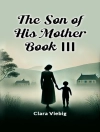In ‘Armour Wherein He Trusted, ‘ Mary Webb intricately weaves a narrative that delves into the complexities of rural life in early 20th-century England. The novel showcases her signature lyrical prose, rich with vivid descriptions of the natural landscape and the emotional depth of her characters. Set against the backdrop of a changing society grappling with the repercussions of the Great War, Webb explores themes of love, loyalty, and the quest for personal identity, while employing a blend of realism and romanticism that invites readers to reflect on the human condition. Mary Webb, known for her pastoral novels, draws heavily from her own experiences growing up in Shropshire, an influence that permeates her work. Her intimate knowledge of the English countryside and its inhabitants informs the authenticity of her characters and their struggles. Webb’s mastery of language and her acute sensitivity to the subtleties of human emotion reveal the profound connections between individuals and their environments, which might have been shaped by her own trials and tribulations as a woman in a rapidly evolving world. Readers seeking a thought-provoking exploration of love and resilience will find in ‘Armour Wherein He Trusted’ a compelling narrative that resonates with timeless relevance. Webb’s novel not only captures the essence of the era but also invites introspection on the enduring nature of trust and vulnerability in human relationships.
عن المؤلف
Mary Webb (1881-1927) was an English novelist and poet renowned for her vivid depictions of the English countryside and the rustic life. Born Mary Gladys Meredith in Shropshire, she developed a profound connection with nature, which later became a central theme in her literary works. Webb’s writing is characterized by its use of natural imagery and symbolism to explore themes of love, fate, and superstition within rural settings. Her work often drew on her own experiences of illness and hardship, lending her narratives a poignant, emotional depth.
Among her notable books is ‘Armour Wherein He Trusted’, which weaves a narrative emblematic of her unique literary style. Webb’s novels, including ‘Precious Bane’ and ‘Gone to Earth’, are considered prime examples of early 20th-century regional literature and have garnered critical acclaim for their lyrical prose and dramatic intensity. Her contribution to literature was acknowledged posthumously, with her novels finding a wider readership after her death and influencing later generations of writers. Despite her lack of widespread recognition during her lifetime, Mary Webb’s works have secured her reputation as an important figure in British literary history.












